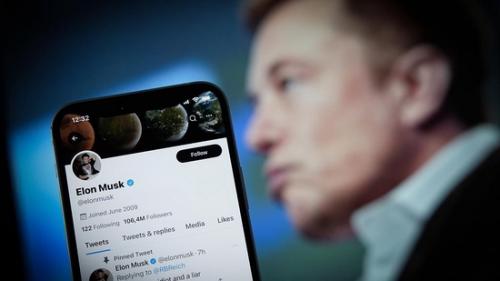your current location is:Home > TechnologyHomeTechnology
Musk pressured? Twitter adds 'phone number authentication' sign to distinguish machine accounts
In the face of Musk's "fake account allegations", social media Twitter began to improve user authentication services.
On August 19, local time, the technology media The Verge reported that engineer Jane Manchun Wong found that Twitter had added the "Verified phone number" label to the user profile column.
This tag can help distinguish whether the account is a real user or a bot, and usually a phone number can be associated with up to ten Twitter accounts.
In addition, Wong tweeted that Twitter started showing how many times a tweet was viewed. "It's not certain whether the views are only visible to the author or open to everyone," she said.

Over the past four months, Twitter and Tesla CEO Elon Musk have engaged in a push-pull battle over an acquisition deal, and at the center of the battle has been the number of "fake accounts" on the platform.
On April 14, Musk sent out a takeover offer to Twitter. On April 25, Twitter announced that it had agreed to Musk’s acquisition agreement, which will buy Twitter for $54.2 per share, for a total of about $44 billion.
It didn't take long for Musk to question the proportion of false accounts disclosed by Twitter, and publicly regretted it. On May 17, Musk had said he would not proceed with the Twitter acquisition until Twitter publicly proved that less than 5% of Twitter accounts were fake.
Real name vs anonymous
Fake accounts on the Twitter platform have always been a "big worry" for Musk. Before Twitter agreed to be acquired, Musk had made a lot of noise that he wanted to implement a real-name system on Twitter. On April 22, he tweeted, "If we can successfully acquire Twitter, we will crack down on all bot accounts and verify all human accounts."

CNN reported that Musk's real-name plan could be implemented in a variety of ways, including requiring all Twitter users to change their nicknames to their real names; using a pseudonym but uploading identification; or with the user's permission Next, retrieve identity information from a third-party platform.
At present, Twitter does not require users' real names, and only introduces user authentication. Authenticated users will have a "blue tick" sign next to their nickname. Twitter explained the authentication mark as "letting users know that the account is authentic."

As early as 2009, Twitter launched a user authentication service, but at that time, users could not apply for it independently, and Twitter could only give this logo to specific users.
In 2016, the certification application was open to all users, but usually only official organizations such as authoritative organizations, brand companies, or influential public figures such as artists, journalists, and opinion leaders can obtain the certification mark, and most ordinary users cannot pass the audit.
The certification application service closed in 2017 and will not reopen until 2021.
Tina Bhatnagar, former vice president of Twitter, said in a statement that the opening of user authentication applications and the display of authentication logos is to allow users to easily and quickly discover high-quality accounts, and to ensure that accounts can connect with audiences.
Former Twitter CEO Jack Dorsey also publicly stated that user authentication is not an audit, and user information will not be made public. "Twitter does not judge users' personal information and does not prejudice users as a result."
Dorsey stressed that anonymity is one of Twitter's most important attributes. He insists that Twitter should not implement real-name authentication, and hopes that Twitter can become a safe place where everyone can speak freely, allowing users to express and share freely without revealing their true identities.
User authentication increases the risk of privacy leakage
In the face of Musk's pressing step by step, Twitter has "conceded". Twitter still doesn't implement a real-name system, but the social media giant is gradually adding authentication methods. Displaying the "phone number authentication" logo in the data column is one of the new solutions.
Although adding authentication marks can effectively distinguish real users from fake accounts, it also increases the risk of user privacy leakage.
Not long ago, Twitter just experienced a user data breach storm. On August 5, local time, Twitter disclosed in a security report that hackers exploited the site's security flaws to obtain the personal information of over 5.4 million users.
The stolen information included users' phone numbers, email addresses, login names, locations, profile pictures, and more.
Twitter said the company became aware of the vulnerability in January and that it has since been resolved.
But the leaked user data cannot be recovered. According to the American media BleepingComputer, the personal information of 5.4 million users was clearly marked at $30,000 (about 200,000 yuan) and sold on hacker forums.

In addition, Twitter itself has a "conspiracy" of illegally leaking user data.
Twitter has been accused of misrepresenting its "security and privacy terms," according to a May Reuters report. The allegations allege that between May 2013 and September 2019, Twitter collected users' phone numbers and email addresses, provided them to advertisers, and used the data to target users with ads.
Twitter eventually agreed to pay $150 million to settle allegations that it illegally collected and sold user data, according to a court filing.
related articles
Article Comments (0)
- This article has not received comments yet, hurry up and grab the first frame~










